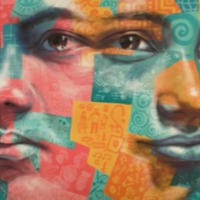
Valeria
Despite having the lowest regional prevalence of modern slavery in the world, Europe remains a destination, and to a lesser extent, a source region for the exploitation of men, women and children in forced labour and commercial sexual exploitation. According to the most recent Eurostat findings, European Union (EU) citizens account for 65 percent of identified trafficked victims within Europe. These individuals mostly originate from Eastern Europe, including Romania, Bulgaria, Lithuania and Slovakia. In Albania and Bosnia and Herzegovina, the European Parliament has identified corruption and the judicial system as reform challenges towards accession talks within the EU. In Greece, the turbulent economic situation has increased vulnerability for populations seeking employment and livelihood opportunities. Valeria’s account makes clear the physical and psychological abuse that is often used to manipulate and imprison those being abused and exploited.
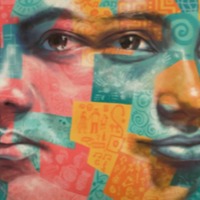
Teodora
Despite having the lowest regional prevalence of modern slavery in the world, Europe remains a destination, and to a lesser extent, a source region for the exploitation of men, women and children in forced labour and commercial sexual exploitation. According to the most recent Eurostat findings, European Union (EU) citizens account for 65 percent of identified trafficked victims within Europe. These individuals mostly originate from Eastern Europe, including Romania, Bulgaria, Lithuania and Slovakia. In Albania and Bosnia and Herzegovina, the European Parliament has identified corruption and the judicial system as reform challenges towards accession talks within the EU. In Greece, the turbulent economic situation has increased vulnerability for populations seeking employment and livelihood opportunities. In Greece, unemployment reached 24.4 percent in January 2016 with a youth unemployment rate of 51.9 percent. Teodora was forced to become a prostitute in Belgium. She contributed to the arrest of her procurers in Romania and gained custody of her son.
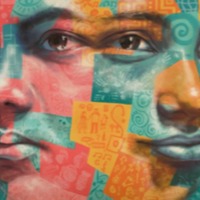
Sar
The Philippines has one of the largest migratory populations with their national economy largely depending on Overseas Filipino Worker's (OFW) remittances. The OFWs have been deemed the 'new heroes' of the Philippines' economy. However, some OFWs are subjected to exploitation throughout the Asia-Pacific, Europe, North America and the Middle East. Sar was lured abroad with promises of well-paid work, which she wanted to help pay for her grandmother’s hospitalisation. Instead, she had her passport and cell phone confiscated and was pressured to engage in sex work. Her account describes potential corruption of the immigration office, and problems with trying to reintegrate into her former community.

Elsa
There are an estimated 784,000 people living in modern slavery in the Philippines (GSI 2018). Men, women and children are subjected forced labour and sex trafficking both within the country and in destination countries. Women and children are subjected to sexual exploitation in brothels, bars, and massage parlours, online, as well as in the production of pornography. The Philippines is an international hub for prostitution and commercial sex tourism – a highly profitable businesses for organised criminal syndicates. The demand for sex with children among both local and foreign men has continued to fuel child sex tourism. Rising internet usage rates, the availability of mobile phones and poverty has fostered online child sexual exploitation. Elsa's father died when she was 12. Her mother left soon afterwards and she moved with her brother to live with grandparents who could not afford food and school for her. By working as a housekeeper and janitor, she was able to keep both herself and her brother in school. But then she accepted a new job offer from a bar owner and became trapped in the sex industry. The managers used a complex system of fines and false debt to keep her and the other girls trapped. 16 victims, including Elsa, were freed by police during an operation in 2013. She went on to testify against the traffickers during their trial. She wrote and told her story in 2016 while in her early twenties and a college student. "Elsa" is a pseudonym.
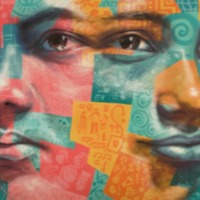
Cathy
In the Philippines, women and children are subjected to sexual exploitation in brothels, bars, and massage parlours, online, as well as in the production of pornography. The Philippines is an international hub for prostitution and commercial sex tourism – a highly profitable businesses for organised criminal syndicates. The demand for sex with children among both local and foreign men has continued to fuel child sex tourism. Rising internet usage rates, the availability of mobile phones and poverty has fostered online child sexual exploitation.
Like many others who find themselves enslaved in situations of sexual exploitation, Cathy was told that she owed her employers all of the money she earned, and kept in debt bondage until a police raid that occurred just before her 18th birthday.
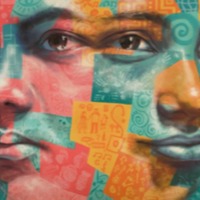
Belen
In the Philippines, women and children are subjected to sexual exploitation in brothels, bars, and massage parlours, online, as well as in the production of pornography. The Philippines is an international hub for prostitution and commercial sex tourism – a highly profitable businesses for organised criminal syndicates. The demand for sex with children among both local and foreign men has continued to fuel child sex tourism. Rising internet usage rates, the availability of mobile phones and poverty has fostered online child sexual exploitation.
Belen was sold into sexual slavery by her mother when she was eight, and although rescued at the age of nine, she ran away from the centre where she lived, run by an NGO, when she was 14. She was recruited back into prostitution.
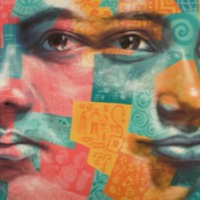
Andreea
Despite having the lowest regional prevalence of modern slavery in the world, Europe remains a destination, and to a lesser extent, a source region for the exploitation of men, women and children in forced labour and commercial sexual exploitation. According to the most recent Eurostat findings, European Union (EU) citizens account for 65 percent of identified trafficked victims within Europe. These individuals mostly originate from Eastern Europe, including Romania, Bulgaria, Lithuania and Slovakia. In Albania and Bosnia and Herzegovina, the European Parliament has identified corruption and the judicial system as reform challenges towards accession talks within the EU. In Greece, the turbulent economic situation has increased vulnerability for populations seeking employment and livelihood opportunities. In Greece, unemployment reached 24.4 percent in January 2016 with a youth unemployment rate of 51.9 percent. “Andreea” does not explain in this narrative how she came to stay with a much older woman when she was a teenager. However, her friend brought her into sexual exploitation, from which she only escaped when her brother-in-law found her and informed the police.
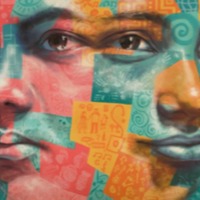
Sumalee
Sumalee was trafficked from Thailand to Japan in 1995, where she was forced through debt bondage into prostitution. She was able to return to Thailand after being arrested by Japanese immigration police. Some men, women, and children from Northeast Asia, Southeast Asia, South Asia, South America, and Africa travel to Japan for employment or fraudulent marriage and are subjected to sex trafficking. Traffickers use fraudulent marriages between foreign women and Japanese men to facilitate the entry of women into Japan for forced prostitution in bars, clubs, brothels, and massage parlors. Traffickers strictly control the movement of victims using debt bondage, threats of violence or deportation, blackmail, passport retention, and other coercive psychological methods; victims of forced prostitution sometimes also face debts upon commencement of their contracts.
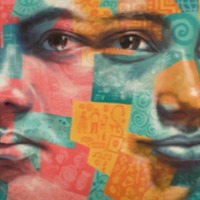
Masha (Narrative 2)
Masha was trafficked to Germany from Russia and enslaved in sex work when she was 24 years old. She was kept prisoner and her passport was withheld from her to prevent her from escaping, but was later arrested in a police raid, which gave her the opportunity to return to Russia. Masha recalls that the German police did not try to understand her situation but simply treated her as a criminal. Another narrative from Masha is available in the archive.
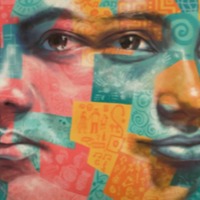
Masha (Narrative 1)
Masha was trafficked into Germany from Russia, where traffickers abduct an estimated 55,000 women each year. Corrupt police officers and border guards reportedly accept bribes to facilitate trafficking. She was kept prisoner and her passport was withheld from her to prevent her from escaping, but was later arrested in a police raid, which gave her the opportunity to return to Russia. Masha recalls that the German police did not try to understand her situation but simply treated her as a criminal. Another narrative from Masha is available in the archive.
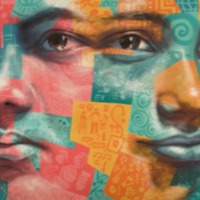
Aye
Aye grew up in rural Thailand but was trafficked to Japan to work in a Tokyo bar with other Thai women who were forced to entertain and have sex with customers. She was told she owed a large debt to the traffickers and the women were not free to leave. Aye managed to escape only after being arrested by police for violating visa restrictions and deported home to Thailand, where she returned to rural life. Thailand is not only a source of men, women and children who are taken into slavery in other countries, but also functions as a transit and destination for the purposes of commercial sexual exploitation and forced labor. Four key sectors of the Thai economy (fishing, construction, commercial agriculture, and domestic work) rely heavily on undocumented Burmese migrants, including children, as cheap and exploitable laborers.